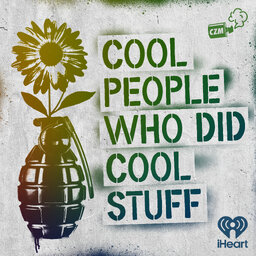CZM Rewind: Part Two: Chumbawamba: How to Sell Out, But in a Good Way
In part two of this week's episode, Margaret continues her conversation with Max Collins of Eve 6 about the squatting, organizing, and robin hood antics of Chumbawamba, the one hit wonders with a thirty year career.
In 1 playlist(s)
Cool People Who Did Cool Stuff
As long as there’s been oppression, there’ve been people fighting it. This weekly podcast dives into…Social links
Follow podcast
Recent clips

Part Two: Ben Passmore on Black History
36:20

Part One: Ben Passmore on Black History
35:44

Everyone vs ICE: On the Ground In Minnesota, Pt. 2
1:02:17
 Cool People Who Did Cool Stuff
Cool People Who Did Cool Stuff